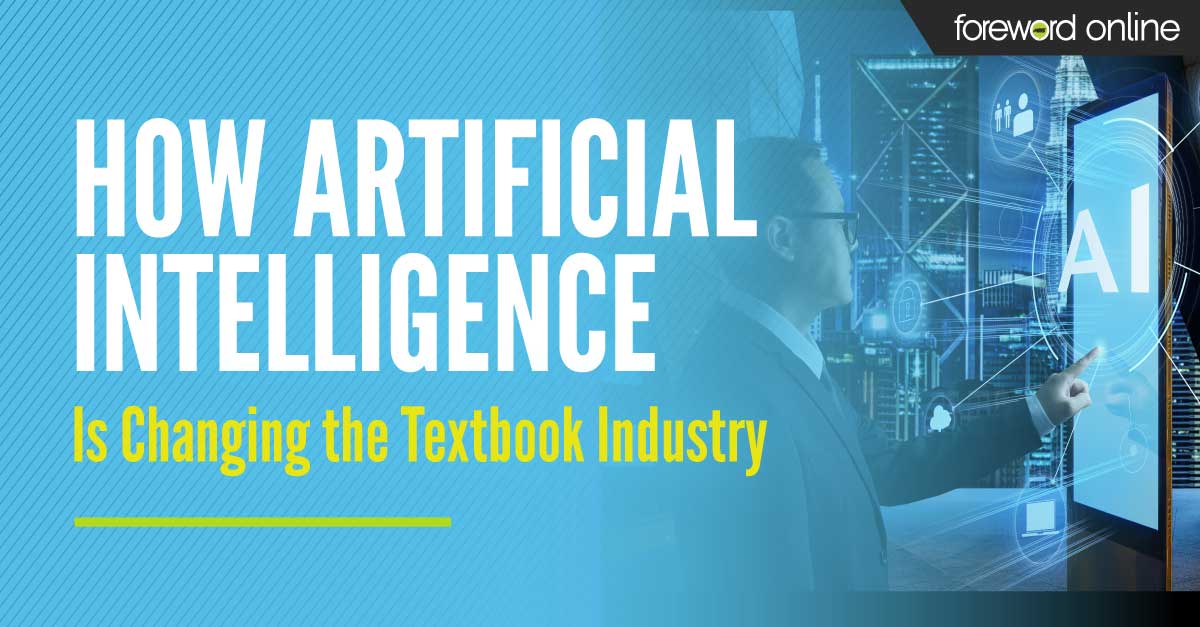Artificial intelligence has shaped the textbook industry in a variety of ways as publishers and retailers have adapted to innovation. It encompasses data trend analysis, automation of textbook sourcing, and even customer interactions through smartphone applications and cash registers.

AI has trickled into retail. There are incredible examples of AI innovation, such as Amazon Go, the brick-and-mortar convenience stores that operate without cashiers or check-out lines. And, AI that is becoming more and more commonplace, such as McDonald’s™ and Panera's™ food ordering kiosks and self-checkouts in grocery stores. The list of companies making the switch to AI-based retail is continually growing, and it’s already being leveraged in the textbook industry.
What is AI
AI means artificial intelligence, but sometimes what that looks like differs from popular interpretations. If you’ve ever used a self-checkout, smartphone and its apps, or a car made in the last 20 years, you’ve used AI. AI in the textbook industry assists customers with the buying process and stores with data analysis. Chances are that you have already used AI to help you make your purchasing decisions.
Types of AI in retail
- Similar item suggestions (Algorithms)
- Smartphone applications for ordering food delivery or items for pickup
- Smartphone applications for making in-store purchases using the camera as a scanner
- Kiosks for ordering food inside restaurants
- Self-checkout terminals
- Customer-service chatbots
- Some security systems
- Drone delivery services
- In-store robots that make recommendations or lead you to desired products
How does AI fit in at your campus bookstore?
The real purpose of implementing AI is to make processes faster and more efficient. This frees up the campus bookstore manager’s time to focus on managerial duties, business strategies and goals.
Dashboard (Link to webinar or case study) brings the power of AI to data analysis and provides campus bookstores with comprehensive business intelligence that can be used to guide decision making. Using Dashboard can assist in optimizing daily tasks like scheduling, placement of items in-store and ordering inventory. Reports guide management in these processes. Dashboard also tracks business goals through key performance indicators.
Point-of-Sale systems are another way AI integrates into your campus bookstore while supplementing the performance of human counterparts (cashiers). Calculations of transactions, communications to the server about inventory, and application of current sales and promotions are all examples of how the AI operates on its own. These kinds of AI have been around long enough, one may not even consider them examples due to how commonplace they are. When comparing these modern systems to how transactions used to be handled with calculators and cash it’s easier to see how revolutionary the systems are.
AI can also direct customers toward products they’re looking for. Lowe’s has unleashed its fleet of LoweBots in its stores to assist customers in finding whatever home improvement item they need. The LoweBot not only directs customers, but it also makes suggestions based on a customer’s needs. Lowe’s analyzes customers’ searches and applies the data to improve the customer experience. Assessing this information can guide business decisions.
AI doesn’t replace human interaction
There is a growing concern for jobs in the marketplace when talking about AI is introduced. Using AI has great benefits, but, it still doesn’t replace interactions with humans. It is a great supplement to the human experience in retail.
AI can better predict what customers plan on purchasing, using shopping trends and purchase histories. Using algorithms, it can calculate what other merchandise customers might want based on their purchase. Human employees can use this information to better serve customers. Humans and machines working in tandem are shown to improve performance with throughput, cost savings and revenues, according to a survey by HBR.
Human interaction is something that can’t be completely replicated by AI. Approximately 86 percent of customers prefer interacting with humans to AI chatbots, according to a survey by Forbes. A major concern of those studied was that it’s easier to interact with humans than AI.
AI isn’t a far-off dream or something that’s only seen in sci-fi films. It’s already here and being used by many companies in the industry. It’s quite possible you already use AI services or machines in your store.


